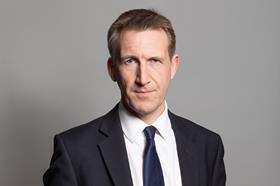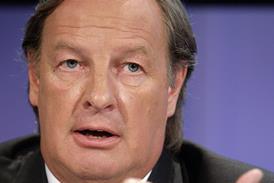Foreign powers are becoming increasingly adept at operating in the shadows, using covert influence to shape political outcomes abroad. These tactics are not theoretical – they are real, evolving, and sophisticated. Rather than relying solely on traditional diplomatic channels or overt statecraft, hostile actors are turning to proxies, intermediaries, and covert arrangements to exert influence in ways that are difficult to detect and even harder to counter.

In response, the UK is taking clear and robust steps to strengthen its resilience, increase transparency, and deter hostile foreign powers from undermining our democratic institutions. The Foreign Influence Registration Scheme (FIRS) is a central component of this strategy. It is designed to bring hidden activities to light, disrupt covert influence operations, and protect the integrity of our political system from manipulation and subversion.
FIRS is vital to safeguarding our democracy and national security, forming a core part of our Plan for Change, and enabling us to counter growing threats, protect the country, and uphold the government’s first duty to keep people safe.
The scheme introduces two distinct tiers of registration: the political tier and the enhanced tier.
The political tier applies to all foreign powers and covers a broad range of activities intended to influence political outcomes in the UK. This includes lobbying, public messaging, and direct engagement with decision-makers. If these activities are undertaken as part of an arrangement with a foreign power – whether formal or informal – they must be registered. The aim is not to criminalise legitimate political engagement, but to ensure that such engagement is transparent and accountable when it is directed by a foreign state.
The enhanced tier imposes stricter requirements. It mandates the registration of all activities carried out at the direction of specified foreign powers, regardless of whether those activities are overtly political. FIRS is not a symbolic gesture – it is a practical, enforceable mechanism that targets the most serious threats posed by foreign powers such as Russia and Iran.
Parliament has approved the specification of the Russian and Iranian states in their entirety, reflecting the scale and persistence of their covert activities. This means that any individual or organisation acting covertly on behalf of these states must register their activities or face criminal prosecution. By requiring registration of certain activities carried out at the direction of these states, FIRS enables law enforcement and national security agencies to intervene where necessary and prosecute those who fail to comply. As such, FIRS will be a powerful tool for disrupting hostile state activity – and ultimately protecting our national security.
For legal professionals, FIRS introduces a number of important considerations. Most notably, there is a legal exemption for lawyers acting in their professional capacity. This exemption recognises the essential role of legal representation and the importance of preserving client confidentiality and access to justice. However, it is not a blanket exemption. It does not apply to political activity undertaken personally by legal professionals, nor does it extend to individuals who do not meet the legal definition of a lawyer.
The boundary between legal work and registrable political activity must be carefully observed. Activities that fall outside the scope of legal representation – such as lobbying on behalf of a foreign client or engaging in public advocacy at the direction of a foreign power – may still be subject to registration. Legal professionals must exercise sound judgement and ensure that they are not inadvertently facilitating unregistered influence on behalf of a foreign state.
As legal advisers, it will be your responsibility to interpret these rules and guide your clients through this new regulatory landscape. This includes helping clients to identify whether their activities fall within the scope of the scheme, advising on the registration process, and ensuring ongoing compliance. In some cases, this may involve conducting due diligence to determine whether a client’s activities are being directed by a foreign power, and whether those activities are registrable under FIRS.
FIRS is a proportionate and necessary response to real and evolving threats. It is not intended to stifle legitimate international engagement or restrict the free exchange of ideas. Rather, it is designed to ensure that when foreign powers seek to influence UK politics, they do so in plain sight. Transparency is a crucial part of democratic accountability, and FIRS reinforces that principle.
The legal community has long been a cornerstone of the rule of law in the UK. But the rule of law can only function effectively if our democratic institutions are protected from those who would seek to subvert them. FIRS strengthens those protections. Ensuring compliance among your clients is not just a legal necessity – it is a professional responsibility and a democratic imperative.
In a world where the lines between diplomacy, influence, and interference are increasingly blurred, legal professionals have a vital role to play. By upholding the principles of transparency and accountability, and by helping clients navigate their obligations under FIRS, you contribute to the resilience of our democracy and the integrity of our political system. Your expertise will be essential in ensuring that the scheme is implemented fairly, proportionately, and in accordance with the values that underpin our legal and democratic traditions.
Dan Jarvis MBE MP is minister of state at the Home Office






























No comments yet